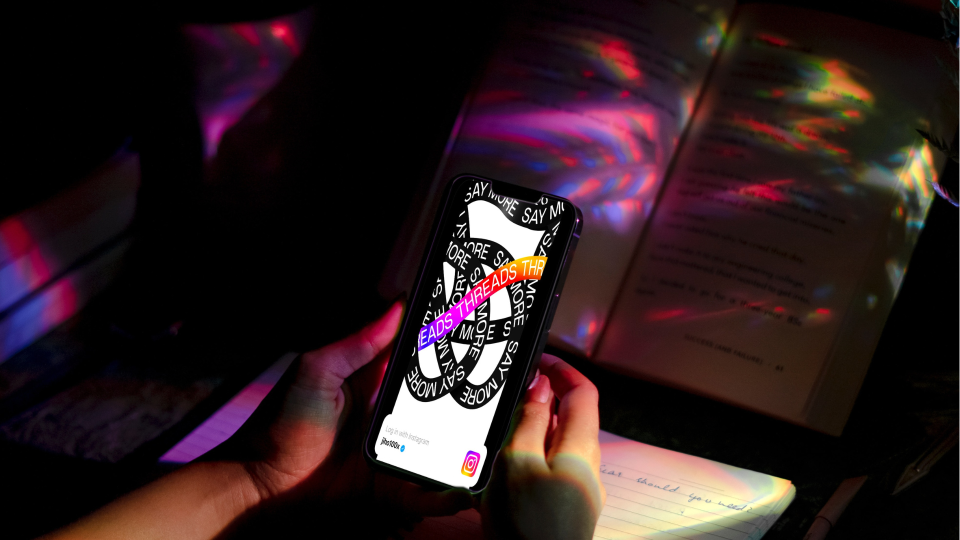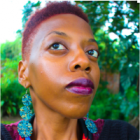
Photo by Viralyft on Unsplash.
With 100 million subscribers recorded in the first week of the roll out of Instagram’s Threads, it seems this new application might become the first real challenge to Twitter’s text-based social media and microblogging application dominance. Depending on which statistics you look at, Twitter has a user base of anything up to 450 million, which means that if Threads is able to retain and grow its audience, there could eventually be a conspicuous long-term migration of Twitter communities to Threads, especially as Elon Musk makes significant changes to the platform, including changing its name to a mere “X”.
In a vlog I published recently, I asked some questions around whether communities like Black Twitter – known for their engagement on issues of race, news and politics, among others – would seamlessly cross over onto Threads. I asked this because Adam Mosseri, head of Instagram, had made it clear that Threads is not a space that will leverage news and politics in the same ways that Twitter has. I, therefore, wondered what would become of communities that aren’t necessarily news or political outlets themselves but which are driven in many ways by the news and political cycle. What would Black Twitter, or maybe Black Threads, look like if it tried to recreate its digital community in an environment that does not prioritise the raw news and political fodder that effortlessly fuel this community via Twitter?
As I thought of this more, I began to reflect whether this lack of focus on news and politics might actually make Threads an attractive alternative for women. As we know, Twitter has an endemic culture of trolling, misogyny and hate that often manifests when women engage with issues and themes of news or political value.
Some years ago, while I still ran the women’s digital platform, Her Zimbabwe, I sought to understand why women were the minority following on a women’s Twitter account. At the time of my analysis, in 2014, Her Zimbabwe had 5,100 Facebook followers and 5,900 Twitter followers. On Facebook, the breakdown of users by gender was 68% female and 31% male (a further 1% was neither). On Twitter, however, there was a drastic difference in that 70% of followers were male while just 30% were female.
What made women more comfortable to follow Her Zimbabwe on Facebook, and not on Twitter?
As the total following was so small, I asked a colleague, Nigel Mugamu, who runs 263Chat, an online news platform based in Zimbabwe, to give me a breakdown of 263Chat’s Twitter followers base. It was larger but also a platform that was woman-friendly in that it engaged in conversations around issues to do with gender, misogyny, sexuality and other topics. But with 24,000 followers at that time, the gendered disparity of 263Chat’s user base was even more pronounced at 83% male and just 17% female. In essence, from Her Zimbabwe (with 1,770 female followers) to 263Chat (with 4,080 female followers), number of female followers increased by less than 3,000; whereas male followers (4,130 for Her Zimbabwe) increased by more than 15,000 between the two accounts, to 19,920 on 263Chat.
Some of the women I consulted to get a better understanding of the situation told me that they felt that they didn’t have anything of news or political interest, or value, to share on Twitter and so did not join the platform. Others feared being publicly visible and attracting trolls and feedback that could potentially be misogynistic.
What made Zimbabwean women shy away so strikingly from Twitter?
Some of the women I consulted to get a better understanding of the situation told me that they felt that they didn’t have anything of news or political interest, or value, to share on Twitter and so did not join the platform. Others feared being publicly visible and attracting trolls and feedback that could potentially be misogynistic. And so they preferred to continue to engage in more private and/or controlled spaces like Facebook groups.
What these conversations revealed is something that is not only common to the Zimbabwean Twitterverse. A 2018 online poll by Amnesty International, for example, found that 53% of the women polled in the US and 47% in the UK experienced abuse that included sexism and misogyny on Twitter. The report notes that:
“The very nature of Twitter encourages users to have public conversations and share their thoughts with others (often strangers) on the platform, meaning that users arguably most benefit from Twitter when they are able to participate in discussions openly… However, the open and public nature of these interactions also means that the platform is vulnerable to being used to send violent and abusive content.”
And so with all this that we already know about Twitter, could Threads potentially offer women a safer space to navigate digital text-based publicity? With Threads being linked to users’ Instagram accounts, it seems an easy and intuitive move with an ability to build an audience and reshare and interact with the people they do on Instagram.
However, this doesn’t seem to solve the issue of women’s absence in public discursive spaces pertaining to news and politics. Unless, of course, communities find interesting ways to broach issues of this nature via Threads, creating safer spaces for women to participate and articulate their needs and aspirations.
We are, however, seeing women in politics who are vocal on Twitter carving similar spaces via Threads. One example is Alexandria Ocasio-Cortez, the American politician and activist popularly known as AOC, who has 1 million followers on Threads and is posting and reposting content of political nature there. Hillary Clinton also has a profile on Threads and has over 100,000 followers.
But reports already suggest that Meta and Instagram are not doing enough to make Threads a safe platform for women and minorities. Reportage suggests that it is already home to the same hate speech and extremism that is found on Twitter. Afterall, social media platforms do replicate these problems that are now part and parcel of being online, especially as a woman.
Of course, the bigger issue remains that of the shaming of women for having public opinions and engaging in news and politics in public spaces. I imagine that if Threads, for some reason, became a more politically oriented space, the same trolls and misogynists who have made Twitter their hunting ground would unfortunately begin to proliferate there too, chasing women again from public discourse.
It’s always a difficult time being a woman with opinions and a desire to engage in spaces so archaically defined as the preserves of men and masculinity.
- 198 views







Add new comment